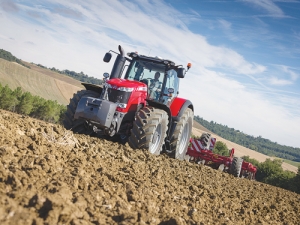The New Zealand tractor market remains affected by the depressed dairy economy: overall sales are down about 14% on the same period last year.
Tractor and Machinery Association (TAMA) president Mark Hamilton-Manns says "certainly dairy payouts have impacted traditional sales. However, many customers are now choosing tractors with less-expensive options to ensure plant replacement continues".
Dairy-dominated markets have seen fewer tractors sold: Waikato was down 19%, Taranaki 36% and Southland 31%.
Says Hamilton-Manns, "Although we expect tractor sales will lag behind last year, we are confident the buoyancy in viticulture, beef and sheep and contractors will ensure we finish the year strongly with around 3200 unit sales.
"Marlborough's booming viticulture sector alone has created industry growth of 7% and we expect this will mean demand for tractors."
He says despite the reduction in overall numbers TAMA member companies keep introducing new products and investing in parts support and technician training.


















